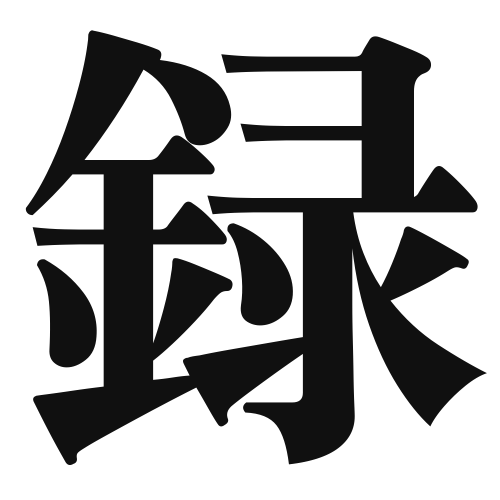1. Overview of Meaning
The kanji “録” (roku) generally means “to record” or “to document.” It is often used in contexts related to recording information, sounds, or events.
2. Formation and Radical
Formation of the Kanji: The kanji “録” is a phonetic compound (形声文字), which combines the meaning of “to record” with phonetic elements. The left part, “言” (gen), relates to speech or words, while the right part, “各” (kaku), contributes to the pronunciation.
Radical: The radical of “録” is “言” (gen), which is associated with language and communication.
3. Examples of Usage
Common Words and Phrases: Some frequently used words that include “録” are:
- 録音 (ろくおん, rokuon) – audio recording
- 記録 (きろく, kiroku) – record or documentation
- 録画 (ろくが, rokuga) – video recording
Example Sentences in Daily Conversation:
- この会議を録音してもいいですか? (Kono kaigi o rokuon shite mo ii desu ka?) – Can I record this meeting?
- 彼はすべてのデータを記録しました。 (Kare wa subete no deeta o kiroku shimashita.) – He recorded all the data.
4. Synonyms and Antonyms
Similar Kanji: A similar kanji is “記” (ki), which also relates to recording but emphasizes the act of writing down or noting something. “録” focuses more on the act of recording in various forms.
Opposite Kanji: An antonym could be “消” (shou), which means “to erase” or “to delete,” representing the opposite action of recording.
5. Cultural and Historical Background
Relation to Japanese Culture: The concept of recording is significant in Japanese culture, especially in preserving history and traditions. The practice of documenting events, such as festivals and ceremonies, is deeply rooted in Japanese society.
Proverbs and Idioms: One relevant proverb is “記録に残す” (kiroku ni nokosu), which means “to leave a record,” emphasizing the importance of documentation in history and memory.
